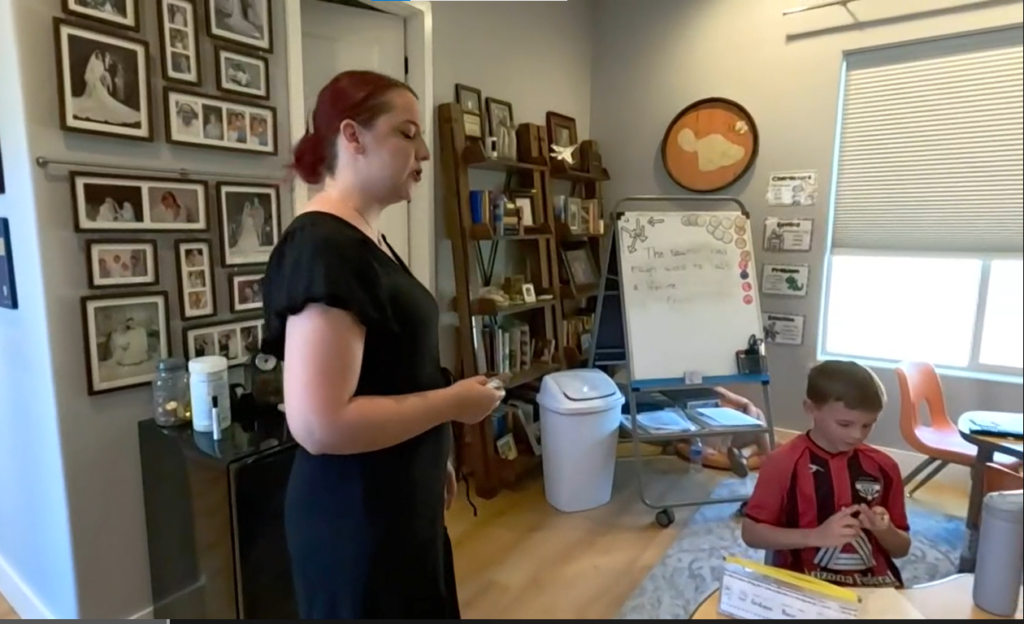By Matt Frendewey
In Queen Creek, Arizona, Ariel Derrick’s daughter wakes up excited to go to school. Her classroom is a converted home, her class is small, and her teacher—Tamara Becker—knows her as a person, not a data point. At Adamo Microschool, learning isn’t something children endure. It’s something they love.

That’s what education freedom looks like.
This year, lawmakers across the country passed bold policies to expand learning options for families. But, if we measure success only by the education bills passed, we’re missing the point. Education freedom matters because it reaches children’s lives—and reorients the system around them.
For the Derrick family, access to a new school has made all the difference. At Adamo—Latin for “to fall in love with,”—her daughter is flourishing. She even asked her mom if she could skip summer break to keep going to school.
The story of education freedom isn’t about bureaucrats or budgets. It’s about trust—trusting parents who know their children best. It’s about creating space for educators like Tamara, a 28-year veteran of public schools, who founded the school by reimaging what learning looks like when you strip away the red tape and start with the child. It’s about no longer pushing kids to fit into a system and instead building experiences to fit their needs.
The Adamo story isn’t unique. Homeschooling and out-of-system learning are growing as public school enrollment declines.
Across the country, families are leaving behind one-size-fits-all schools for something different. Not because those schools were necessarily bad—but because they weren’t right. And when parents are given the freedom to choose, they’re choosing environments that treat their children as individuals with tremendous potential—not averages, not line items, not test scores.
This shift is happening not because of top-down mandates, but because bold policymakers are responding to local courage. Leaders like Tennessee Gov. Bill Lee, a longtime champion of education freedom, ensured his state passed a universal education savings account (ESA) program in mid-February. Gov. Sarah Huckabee Sanders, committed to delivering transformative education policy for Arkansas families year-after-year, set another high bar by signing an expansive public school access bill this year. In Idaho, Gov. Brad Little signed a refundable education tax credit bill into law. In Texas, Gov. Greg Abbott overcame fierce special interest opposition to pass one of the nation’s largest ESA programs.
And just last month, New Hampshire Gov. Kelly Ayotte signed a universal ESA bill into law.
Transformational policy is not limited to these states or a single political party. In Nevada, language submitted by the Democratic education chair was brought into the Republican governor’s bill that will empower thousands of families to find the public school that works best for their children. Families also saw momentum in North Carolina, where a bipartisan effort led to a universal ESA in 2023 and funded the waitlist in 2024 so every kid who needs more flexibility can get it.
What began for many families as pandemic pods continues today, as families form pods in church basements, barns, and any space they can find. Teachers are launching microschools in their garages. Communities are organizing to meet their kids’ needs directly—not waiting for permission.
This is what progress looks like. It’s decentralized, it’s deeply human, and it’s working.
Of course, none of this is inevitable. There are still forces fighting to drag education back to standardization and central control. In Oklahoma, a misguided effort to regulate parents was defeated when lawmakers ensured private schools stay private—even if parents use the state education tax credit for tuition.
We are in the midst of a national education transformation. It’s happening in all 50 states. Families are stepping out on their own to work with educators outside the traditional system.
To complete this transformation—from a standardized to an individualized system—we must stay focused on what matters: students, not systems. There is no limit to what this movement can achieve.
The future of education isn’t top-down. It’s every kid-up.
Matt Frendewey is vice president of strategy with yes. every kid.
